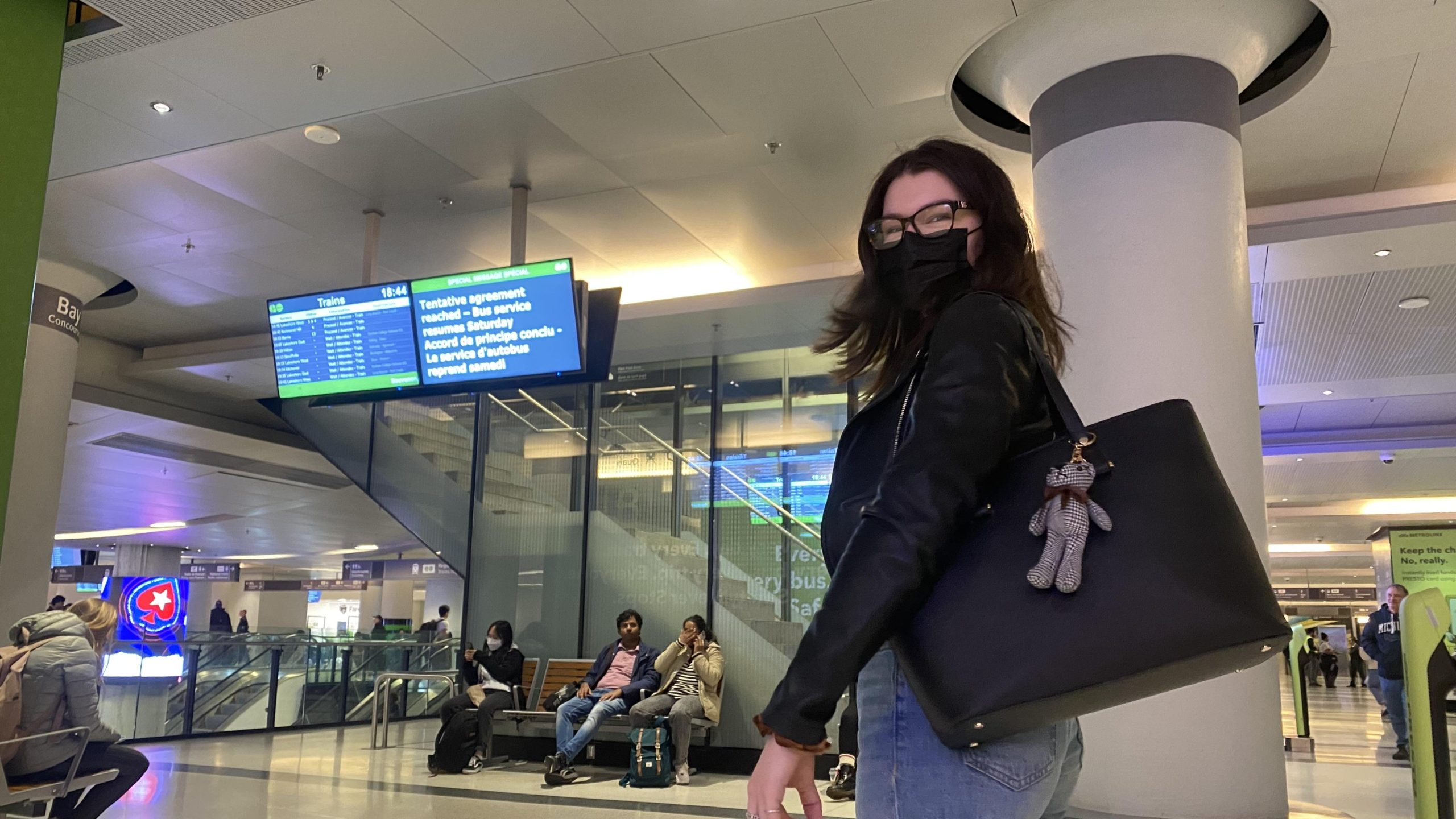By Prapti Bamaniya
Students at Toronto Metropolitan University (TMU) welcome back GO bus service after scrambling to commute to campus through the four-day GO bus strike last week.
The Amalgamated Transit Union (ATU) Local 1587, the union that represents GO transit workers including GO bus drivers, issued a statement on Nov. 6 saying it was unable to secure a new contract with Metrolinx, resulting in a strike starting on Nov. 7.
All GO buses stopped running throughout the duration of the strike, however GO trains remained in service.
In a statement on Nov. 10, ATU Local 1587 said it reached a tentative deal with Metrolinx which allowed GO bus service to resume this weekend.
“I’m glad it’s back now,” said Oscar Rivera, a third-year aerospace engineering student at TMU. “The strike just completely ruined my schedule.”
Rivera commutes from Mississauga, Ont. regularly and last week he had to take the subway instead of the GO bus, adding an extra 30 minutes to his commute. “It was just so inconvenient,” he said.
Maryam Al-Biwari, a fourth-year biology student, missed a class on Tuesday because she didn’t have a dependable way to get to school.
“I was just stranded because I ran out of options,” she said.
For the rest of the week, Al-Biwari had to take an Uber or Lyft to the GO station to catch the train, which she said costs her four times the roundtrip expense of her regular commute.
With buses running again, she said her schedule will return back to normal.
“It was a little chaotic last week because I had to move my [work] shift around…so I’m glad to hear busses are back.”
Josh Tan Ngo, a fourth-year mechatronics engineering student, commutes from Milton, Ont. and had to stay on campus later than usual last week to catch the right train home, as opposed to his usual GO bus earlier in the day.
“I’m glad my commute will be normal again,” he said.
“The strike has definitely affected me in a negative way, I felt stranded on campus sometimes.”
He said he would find himself tired on the late drive home from the GO station.
“It was a bit dangerous when I found myself snoozing off,” he said. “I’m really on five hours of sleep this whole week.”
Tanvi Srivasta, a fourth-year business management student said she had to change her schedule to accommodate taking trains to TMU instead of the bus.
“It caused someone having to drop everything to take me to the GO station, like my parents, something which is obviously an extra effort,” she said. “I’m happy they’ll get their time back too with buses running again.”
Although students struggled to get to campus, most were glad that classes were not cancelled or shifted online.
Srivasta said cancelling classes would have set course content behind schedule, which would have increased her workload.
“With final exams and big assignments around the corner, I just feel like it would have maybe made things worse…it would just be an extra effort on [students] if [classes] were cancelled,” she said.
Rivera said he didn’t expect the school to cancel classes.
“Personally, I don’t think there’s anything the school can do to make it better.”
In an emailed statement to The Eyeopener, TMU said GO bus users “will need to make alternative arrangements, such as carpooling or taking other public transportation,” during the strike.
“All community members are asked to plan for extra time to get to campus or other locations until the strike ends,” the statement read.
ATU Local 1587’s negotiations with Metrolinx about GO transit contracts lasted around seven months. The negotiations surrounded safety concerns and amendments to Bill 124, which caps wage increases at one per cent, according to the union’s statement.
The statement said the new contract addresses the union’s safety concerns by “ensuring that experienced and highly trained workers remain on the job and includes critical language that would protect GO Transit jobs from being contracted out.”
ATU Local 1587 said in past statements that Metrolinx often contracts out work to outside companies and practiced half-time pay for bus drivers on mid-shift layovers.
The union was able to agree to a wage re-opener if Bill 124 is reversed in the future, according to the union’s statement.
Metrolinx tweeted it is pleased they have reached a tentative three-year agreement with the union, calling it good news for both employees and customers.
Peggy Nash, a labour relations expert at TMU, said employers can often dismiss safety concerns because solutions often result in an increased cost for accommodation.
“Safety, as you can well imagine for drivers, is a pretty important issue…Often from the employer’s perspective, it’s a question of cost,” she said.
“These can be issues that are very thorny and this certainly wouldn’t have been the first dispute a union had over health and safety.”
Withdrawing employee labour is a union’s only mechanism when employers refuse to listen to their concerns through bargaining, she added.
“It really is the only tool that workers have to press their bargaining goals. When the union has the ability to withdraw labour and to set a deadline for that, it focuses everybody’s attention.”
Union members will vote to ratify the contract in the coming days.













Leave a Reply